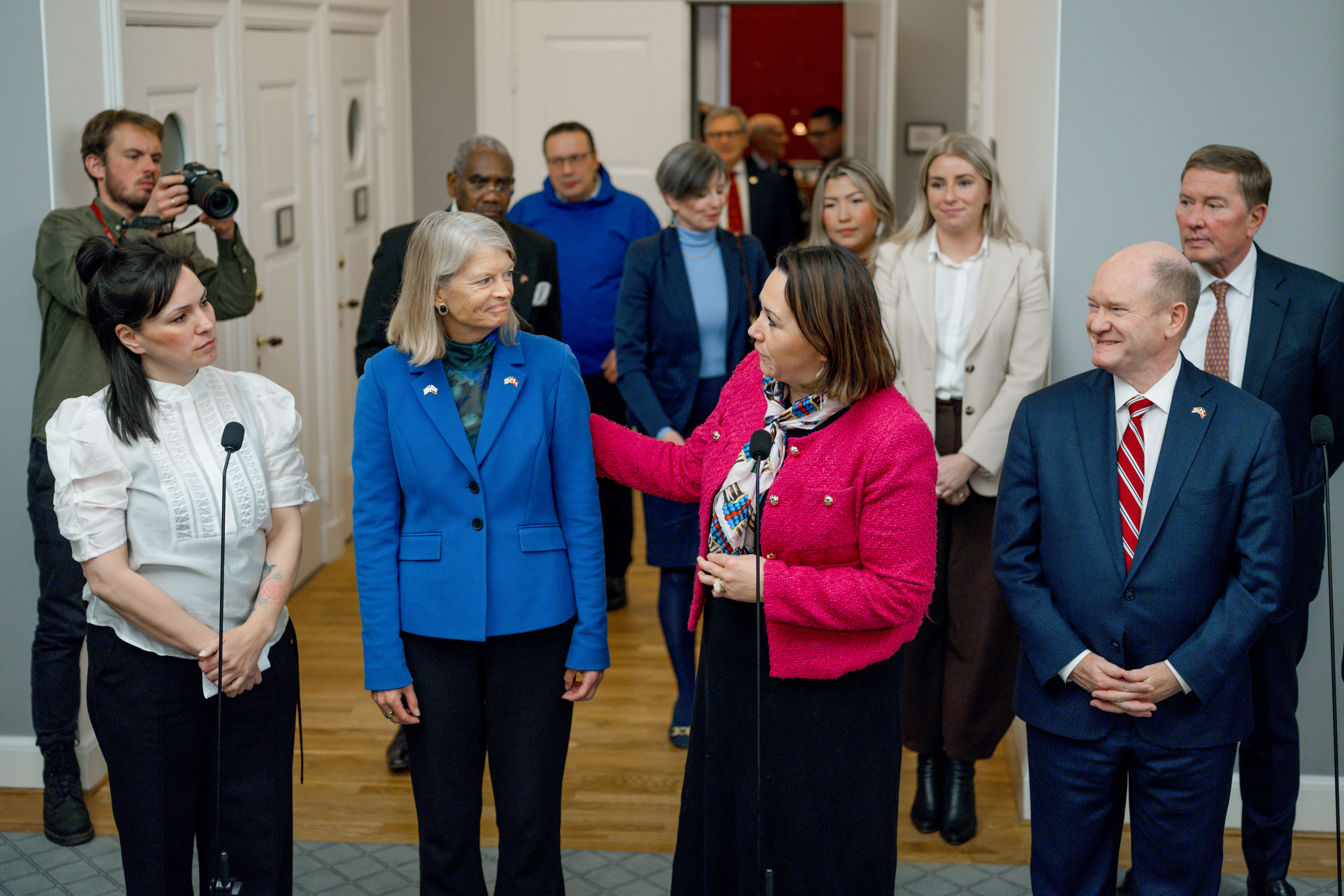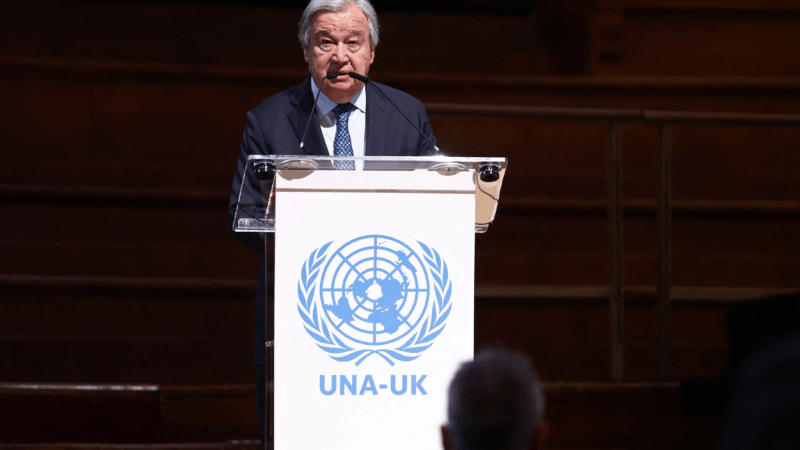President Trump brings back practice of detaining families together
The Trump administration has brought back the practice of detaining families with children as a part of an effort to crack down on immigration.
The Department of Homeland Security is reopening the Karnes and Dilley detention centers in Texas and retrofitting them for families.
Families have already been sent to the detention center in Karnes City, in southeastern Texas, DHS said. The Biden administration largely ended the practice of family detention, using the facilities to hold adults instead.
President Trump detained families during his first term in an effort to deter migration through the southern border. The George W. Bush and Obama administrations also did so, and former President Joe Biden briefly considered it.
“The bottom line is that these individuals have final deportations orders from federal judges. This Administration is not going to ignore the rule of law,” Tricia McLaughlin, spokesperson at DHS, said in a statement. “The best option for illegal aliens is to self deport. If they leave now, they may still have an opportunity to return and live the American dream.”
U.S. Immigration and Customs Enforcement, the DHS agency that processes people for deportation, has been particularly constrained since the start of the administration in finding enough people to arrest and detain those without legal status. Its 20 field offices have been tasked with a quota of at least 75 arrests per day, despite limited staffing – even as the agency struggles to find space to hold those placed in detention.
Advocates warn of harms
Immigration advocates have been quick to denounce the move of boosting detention of families, primarily for its effect on children.
“Detention is harmful and traumatic for everyone, but especially children,” Setareh Ghandehari, advocacy director of the Detention Watch Network, said in a statement. The group aims to end the practice of immigrant detention.
“Families should be able to navigate their immigration cases in [the] community with support services provided and facilitated by local community based groups.”
Critics said such detentions, including at these newly reopened facilities, resulted in the death, abuse and psychological harm of children.
“No child seeking safety should be held behind bars, period,” said Amy Fischer, director of refugee and migrant rights at Amnesty International USA.
During the Trump administration’s first term, children of migrants were separated from their parents and held in detention centers in an effort to deter more illegal migration. The move prompted widespread criticism, including from some Republicans.
The policy was ultimately reversed, although some 1,000 children taken from their parents at the border still have not been reunited with their families as of early 2024.
Tom Homan, seen as one of the architects of that policy, is now Trump’s “border czar” but before inauguration pledged that he would aim to deport families together in a humane way.
Private contractor expects “growing” government needs
The facility in Dilley reopened under an agreement between CoreCivic, a private prison company, and ICE to resume operations and hold up to 2,400 individuals. CoreCivic said in a statement that it had managed the facility from 2014 until the contract ran out in August 2024. The new contract, which expires in 2030, is expected to reach annual revenue of $180 million.
“We are entering a period when our government partners — particularly our federal government partners — are expected to have increased demand,” Damon Hininger, CoreCivic’s CEO, said in a statement. “We anticipate continued robust contracting activity throughout 2025 that will help meet their growing needs.”
The administration has been using CoreCivic contracts, as well as the Federal Bureau of Prisons, to increase its detention capacity.
Facilities in New Jersey, Ohio, Nevada, Oklahoma and Mississippi have expanded contracts with ICE since Trump started his second term.
The 2026 Olympics are the most widespread in history. See what’s happening where
Competitions will be hosted at 25 venues spanning an area of more than 8,000 square miles. Here's what's happening at each of the four main clusters.
U.S. lawmakers wrap reassurance tour in Denmark as tensions around Greenland grow
A bipartisan congressional delegation traveled to Denmark to try to deescalate rising tensions. Just as they were finishing, President Trump announced new tariffs on the country until it agrees to his plan of acquiring Greenland.
Can exercise and anti-inflammatories fend off aging? A study aims to find out
New research is underway to test whether a combination of high-intensity interval training and generic medicines can slow down aging and fend off age-related diseases. Here's how it might work.
Trump has rolled out many of the Project 2025 policies he once claimed ignorance about
Some of the 2025 policies that have been implemented include cracking down on immigration and dismantling the Department of Education.
High-speed trains collide after one derails in southern Spain, killing at least 21
The crash happened in Spain's Andalusia province. Officials fear the death toll may rise.
United Nations leaders bemoan global turmoil as the General Assembly turns 80
On Saturday, the UNGA celebrated its 80th birthday in London. Speakers including U.N. Secretary-General António Guterres addressed global uncertainty during the second term of President Trump.






